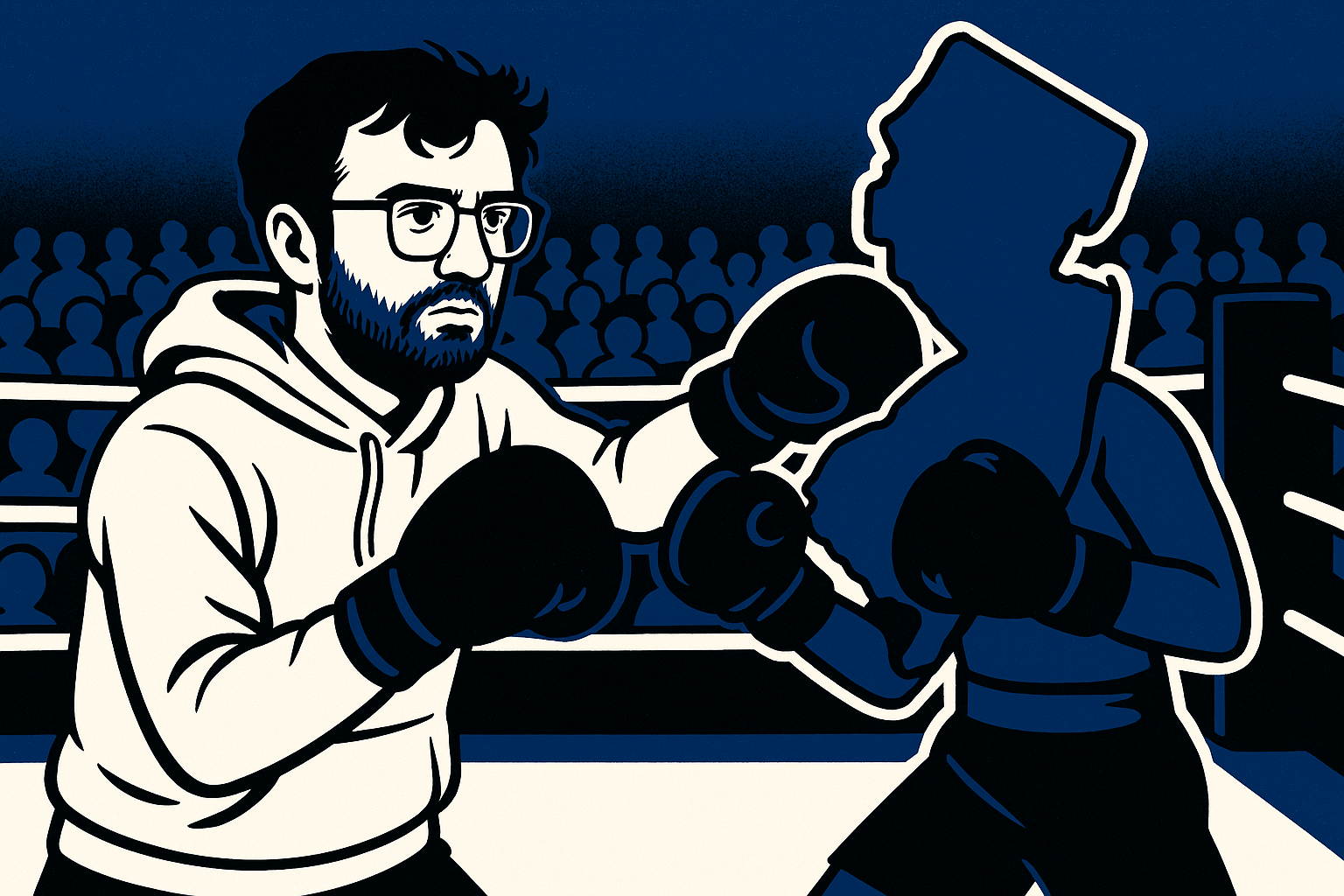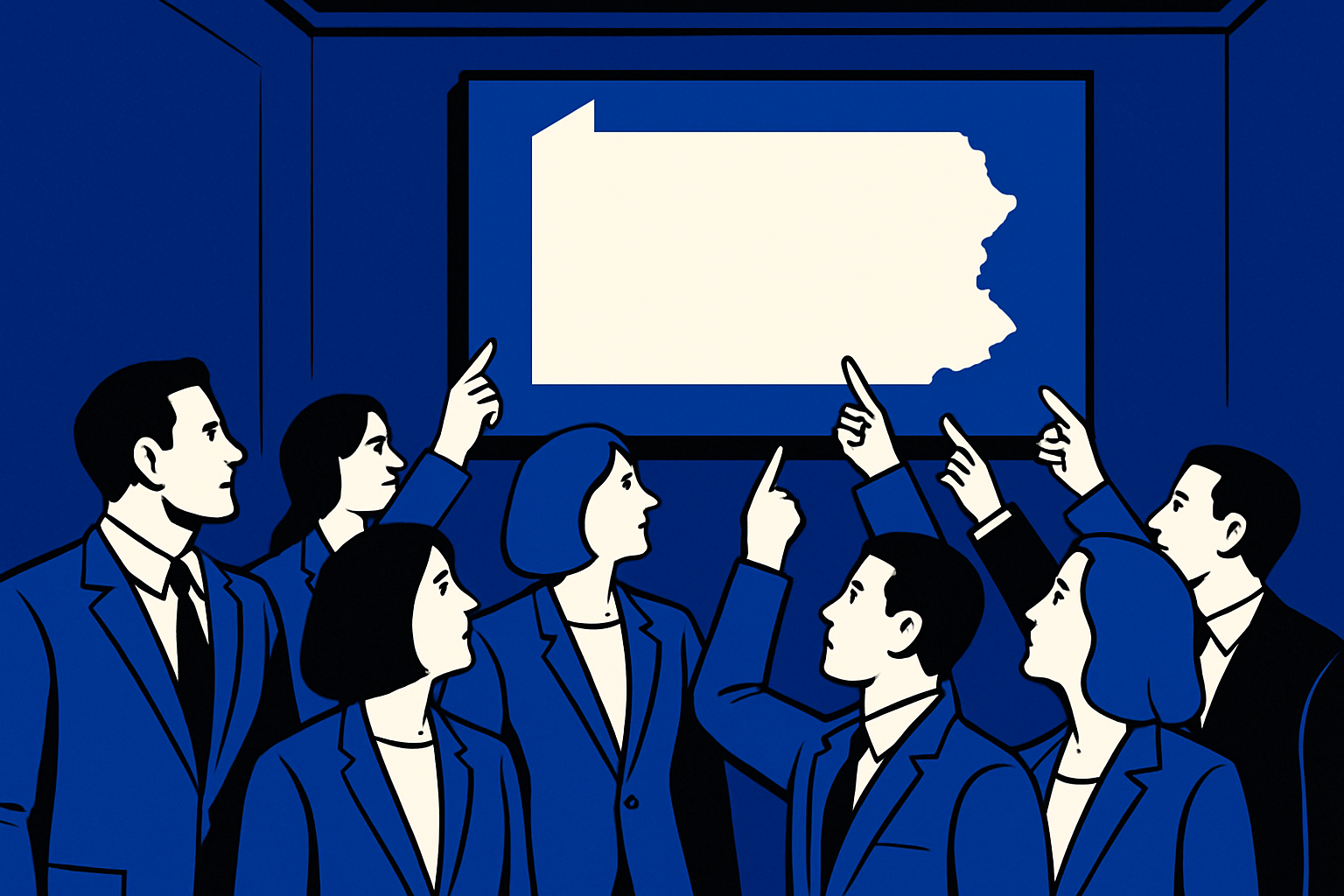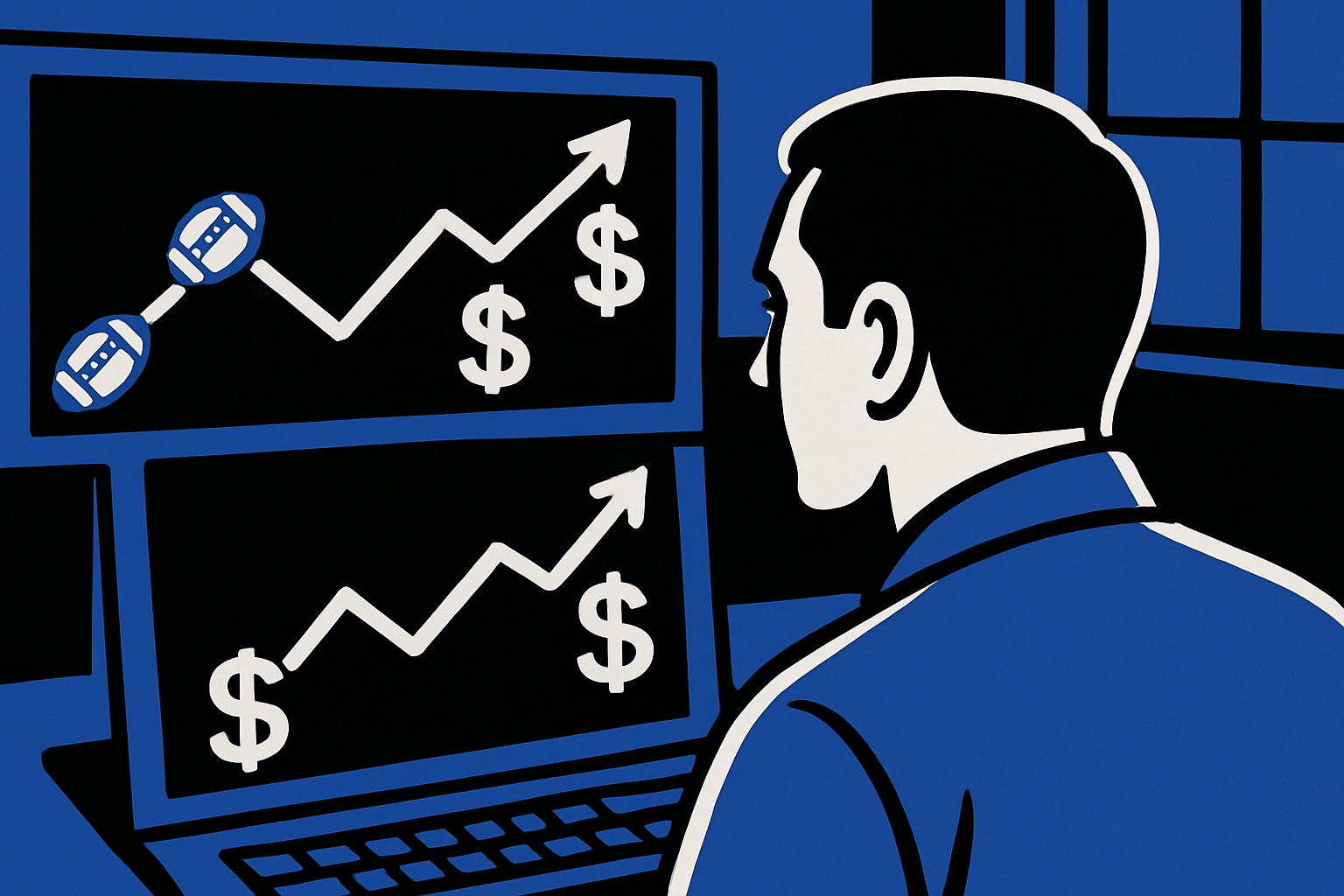While state pushes for regulated iGaming legislation in 2025 have been tabled for the year, one state senator is not giving up just yet. Sen. Joseph Addabbo, Chair of the Senate Racing, Gaming and Wagering Committee in New York, maintains that now is the time to pass regulated online casinos in his state, not later.
But he can’t do it alone.
The deck certainly seems stacked against a NY online casino bill passing this year, especially with the mounting opposition from unions and the National Association Against iGaming (NAAiG). But Addabbo sees a path to regulated online casinos in New York that would work for all parties — that is, if he can get those parties to the negotiating table.
“There’s so many points to say, ‘Let’s do this. It’s doable.’ The whole world is watching New York. We are perceived globally, not just nationally — but globally, as a growth market. We have one of the most successful mobile sports betting products in the country. Let’s build on that, and the numbers for iGaming will eclipse the mobile sports betting revenue and handle numbers,” Addabbo told Comped. “So the idea is, ‘Why?’ Don’t let issues regarding the union stop us. Let’s figure it out. It can be figured out. There’s no hurdle that’s too big that we can’t overcome with iGaming. And iGaming in New York is not a question of if, but when. It’s going to happen. It’s a question of when.
“But every year we don’t do it, that’s a billion dollars, and that’s another year we’re not helping people with an addiction. So the rational thought is, let’s work on it now. Let’s do it this year so that by next year, you have some revenue.”
The tax revenue argument
For Addabbo, iGaming represents a viable solution to helping offset a growing budget deficit in New York.
“Just a peek at next year’s (2026) budget — we’re looking at a $3 billion deficit, and then the year after that (2027), it’s a $6 billion deficit,” he said. “So, you’re going to need sustainable revenue going forward. And that would be iGaming. And with that would come iPoker.”
Results from a recent study by The Innovation Group — commissioned by the NAAiG, a group explicitly formed to oppose iGaming legalization — estimate potential annual New York net tax revenue from adding legal iGaming at $140.8 million. Considering the estimate assumes a tax rate of 20% (30.5% is the rate in the proposed bill), the estimate is likely low.
The same study also projects loss of more than 4,900 jobs, $449.3 million in labor income loss, and $1.17 billion in other economic spin-off costs, which does not take into account the many job-related protections and problem gaming provisions in the proposed Senate iGaming bill. All in all, it’s likely the estimated iGaming net tax revenue could be much higher for New York, and negative trickle-down economic impacts could be minimized with policy provisions that Addabbo is proposing.
Without considering potential downstream negative economic impacts, conservative estimates put annual iGaming tax revenue in New York between $1.5 billion and $3 billion. Considering the state eclipsed $1 billion in sports betting tax revenue in 2024, a vertical that typically brings in less than one-third the amount of taxes as iGaming, it’s reasonable to expect internet casinos to bring in around three times that of sports betting, despite a lower tax rate.
New York is no stranger to budget shortfalls — and a growing tax revenue deficit. To help cover a recent budgetary gap, Gov. Kathy Hochul enacted congestion pricing that levies a tax on commuters entering Manhattan south of 60th Street during peak traffic hours. After going into effect on Jan. 5, the new tax brought in around $50 million in toll revenue in each of its first two months.
According to Addabbo: “We don’t even have to talk about congestion pricing if we can figure out a way to do iGaming. And then that money goes toward healthcare or goes toward transportation. This is what it could be used for, and it’s significant revenue.”
Addressing jobs and cannibalization concerns
In addition to several responsible gambling-related provisions in the bill, Addabbo has answers for union-related opposition in the form of job protections for casino workers. For example, one condition for licensure would be a labor peace agreement, to include job guarantees from existing retail casinos.
Addabbo told Comped his bill would automatically increase Hotel and Gaming Trades Council membership by 2,000 because all live dealers and other iGaming-related employees must reside in New York and be members of that union.
“My constituents work at Resorts World,” he said. “I do not want them to lose their jobs. I want more jobs at Resorts World so more of my constituents could work there.”
Addabbo also earmarked in the bill a $25 million fund for casino employee training, an amount he says is completely negotiable.
“It’s a placeholder, and what it does is it acknowledges the willingness to negotiate this theory of cannibalization, which I don’t agree with, but I’m willing to work on,” Addabbo said. “Somebody told me it should be $50 million. Okay, let’s talk. Or we could be creative. You have a certain employee level at a brick-and-mortar casino. Why don’t we get that level and say, once we do iGaming, you can’t go below that level. So, you can’t fire people because of iGaming.”
“This is just an idea,” Addabbo added, “but it all starts with an idea. It starts with a conversation. So I’m willing to be creative, to be the model for every other state in the nation.
“I think any issue that has ever confronted us in terms of iGaming, we can overcome. I’m confident of that. With a little creativity in the statutory language, we can protect the brick-and-mortar retail casinos.”
More than that, Addabbo believes that the two different channels can actually help lift each other up, as we’ve seen with a number of operators in established iGaming markets.
“We can actually have them expand, because those brick-and-mortar casinos, they can say, join our app, join the iGaming app,” he told Comped. “Come to our casino. Come visit us. We’ll give you a free meal. You get a free spin. You get a free show, whatever it is they can cross promote. So I don’t think there would be cannibalization. I don’t, but we can address that.
“But I can’t address it if nobody wants to talk to me about it.”
‘It’s about protecting New Yorkers who are already doing iGaming’
The need for passing regulated iGaming in New York, according to Addabbo, goes beyond the significant added tax revenue to being able to better address problem gambling, which is already an issue among state residents.
“So we can talk about billions of dollars in revenue, which I think we would obtain with iGaming,” he said. “We can talk about thousands of union jobs because the live dealers have to be in New York. We can talk about all these good things, but it’s about protecting New Yorkers who are already doing iGaming.
“‘Let’s not be naive,’ I tell my colleagues. People in New York are doing it illegally, or they go into Jersey, Pennsylvania, Connecticut, because we’re surrounded.”
The growing presence of online sweepstakes casinos is another reason Addabbo cites for necessitating a regulated market. Not only do these dozens of sites advertise their games as legitimate with “no purchase required,” Addabbo said, they also potentially appeal to underaged residents.
“Especially with the sweepstakes casinos — with a click of a button, you’re 21 years old because they don’t check,” Addabbo claimed. “And the games are all pretty and colorful and they resemble a video game. There are no real guardrails for these sweepstakes casinos, no real regulations.”
The Social and Promotional Games Association, a prominent advocacy group for sweeps gaming sites, consistently pushes back on the notion their games are dangerous or advertised as legitimate gambling platforms. The group specifically called out another one of Addabbo’s bills, one that explicitly bans sweeps sites in the state, as a “colossal waste of resources.”
“The correct approach to support innovation, consumer choice, and the economy of New York,” the SPGA said in a statement, “is sensible regulation and taxation of social sweepstakes games that millions of adults enjoy responsibly and safely.”
Since then, however, several sweeps operators have left New York and the SPGA released a statement saying its members are “adjusting their approach” to the New York market.
“Innovation in digital entertainment often requires a constructive and informed dialogue with lawmakers and policymakers,” an SPGA spokesperson said in a statement.
“We saw that dynamic with fantasy sports, and we believe the same approach will help shape smart policy around sweepstakes promotions.”
Addabbo sees iGaming regulation as being key to protecting New Yorkers and more specifically, minors in the state.
“Another layer of why we should regulate iGaming in New York is that these sweepstakes casinos are unregulated and they’re unsafe,” he said. “Once you regulate iGaming in New York, you’re making a safer product.”
His proposed bill includes a bad actor clause that would make any operator who has offered unlicensed casino games in the state in the previous three years ineligible to receive an interactive gaming license.
SB 2614 also includes a number of responsible gaming safeguards, including:
- $2,500 annual limit on credit card deposits
- $11 million earmarked for problem gambling treatment and responsible gambling education
- Daily, weekly, and monthly self-exclusion options
- Licensees to submit problem gaming plan annually, to be approved by the NYS Gaming Commission
Addabbo’s vision for New York as an iGaming leader
Addabbo has a vision for New York to be an iGaming leader, not just in revenue, but in standing up a market that benefits all shareholders, and protects residents in the state.
“In the end, I want New York to be the state that all the other states who are even considering iGaming, they look at New York, and they go, ‘Wow, look at New York. They got it right. They handled the brick-and-mortar, there’s no cannibalization. They’re going to grow their numbers. They’re going to get the revenue. They’re going to help their people. They got it right,'” Addabbo said. “All because we negotiated; all because we had a conversation about this. But right now, those in the Trades Council, they don’t want to talk about this. No. And I said to others, how underproductive as a state would we be if we just ignored and didn’t talk about issues we don’t want to talk about or we don’t like. ‘Nope. Not going to deal with it.’ How underproductive — we’d get nothing accomplished.”
Addabbo believes that New York, like New Jersey, can prove that iGaming and retail casino gaming can coexist. Additionally, rising demand for online casino gambling is becoming too big to ignore.
“You just can’t hide your head in the sand with technology,” Addabbo told Comped. “Technology is dictating that more and more people are using their phone or their laptop to do certain things. There is a segment of the population that will still go to a casino because they like to see a show, they like to go out to eat, they like the socialization. They can coexist. Jersey proved it. For years Jersey has had iGaming. The numbers of iGaming go up, and so do the revenues of other casinos go up. So Jersey proved that there could be coexistence.
“We can have that in New York too, but I can’t get past the governor who has no initiative on this issue as of yet, and the union who just doesn’t want to talk about it. I think it’s very underproductive, I do, and irrational.”
In Addabbo’s estimation, the time to regulate iGaming is now, and further delays continue to be costly for New York, in more ways than one.
“So every year we don’t do it, we lose a billion dollars,” he said. “And I point to the governor, and I go, that governor just managed to lose a billion dollars. And failed to really help someone who possibly has an addiction because they’re doing iGaming in another state or illegally on some offshore online account, which is very dangerous.”





